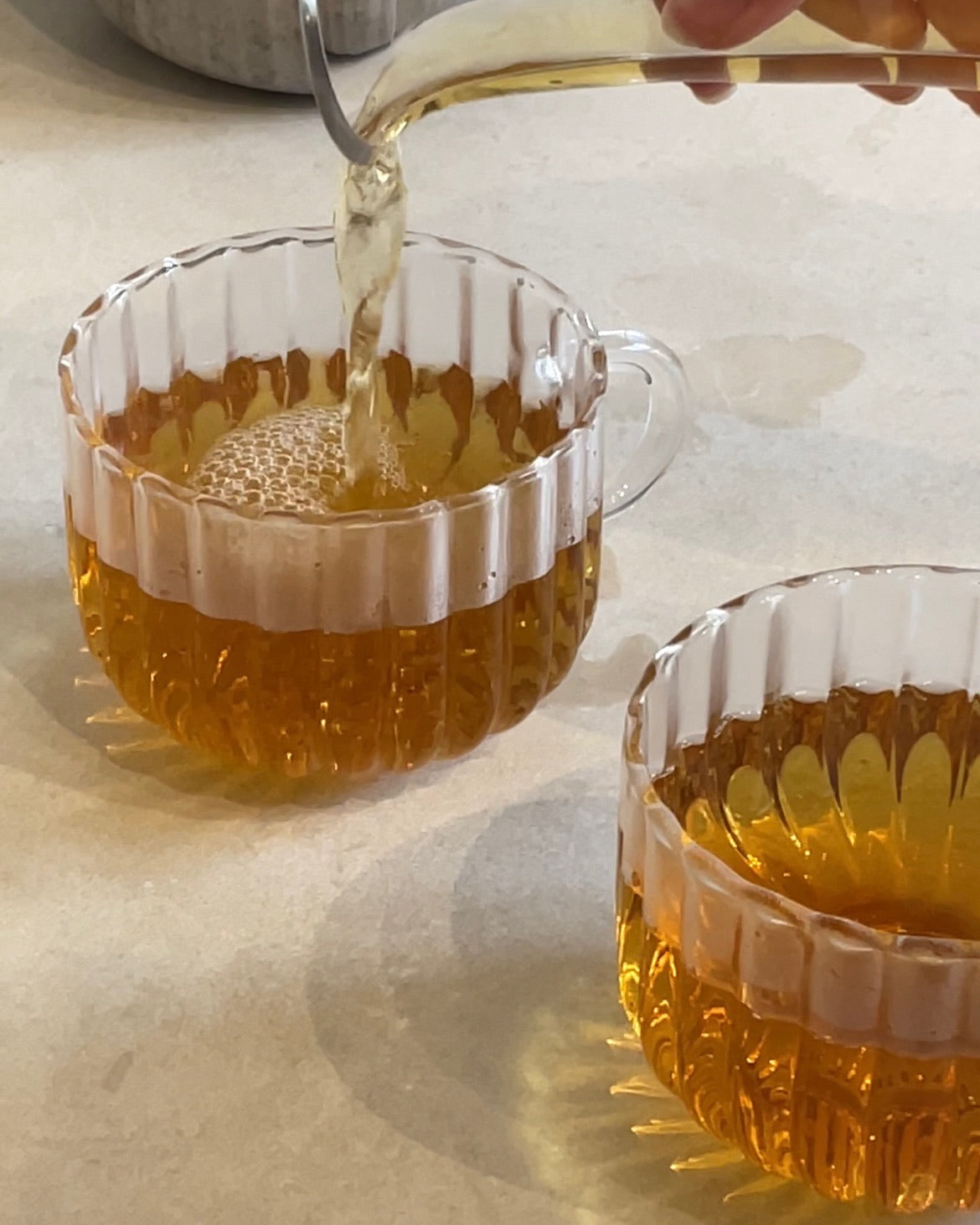
In this week's podcast episode , we sit down with Doctor Diamantis, where we talk for a large part of the conversation about nutrition connected to women's health. We talk about what kind of food helps us stay healthy but also how warming and cooling food (in terms of energy and temperature) can have an impact on our menstrual cycle and what symptoms we can experience during the month such as increased menstrual pain, PMS, missed ovulation and menstruation. Below we create an understanding of yin and yang and go into what "cooling" and "warming" foods mean and how we can use them to our advantage.
Yin and Yang – feminine and masculine energy within us
In Chinese medicine, we usually talk about yin (the feminine energy) and yang (the masculine energy) and how these need to be in balance for us to feel well and be in harmony. By nature, we women are generally more yin, while men are generally more yang. For example, yin controls all fluids in the body such as menstruation, breast milk and discharge. For us women, it is extra important to keep warm, both in terms of temperature and energy, as the uterus is extra sensitive to cold (which can be heard in the meaning of the word uterus, life = energy).
In today's society, there are many women who experience a so-called "yin deficiency", which can be expressed in various menstrual-related problems such as missed periods, difficulty in having children, menstrual pain or menopausal problems as "QI" (energy) cannot circulate as it should .
What is the reason why many women experience an imbalance of yin?
The fact that many women today experience a yin imbalance can be due to several things linked to our lifestyle, such as stress (both internal and external), what we eat, hard training, trauma, alcohol and drugs, but also genetics. Other parts that can affect are how much cold we are exposed to through, for example, temperature and how we dress for the climate around us.
Symptoms of having a lot of cold (“yin deficiency”) in Chinese medicine:
Cold hands and feet, fertility problems, menstrual cramps, coldness, weight gain, IBS, Raynaud's disease (white numb fingers), pale complexion and fibromyalgia.
Things that add cold to the body:
Cold raw food such as salad, unheated/cooked vegetables, fruit, smoothies, cold drinks, hard exercise, too little food, not sleeping enough and exposing yourself to cold by not dressing enough.
Things that warm up the body:
Hot and cooked foods such as soups, meat stews, bone broth, hot drinks, warming baths and spices such as ginger, turmeric, cardamom, pepper, garlic, chilli and cloves.
List of warming and cooling foods in Chinese medicine (yin and yang)
According to Chinese medicine, different foods and foodstuffs have different properties that can be warming or cooling both when it comes to temperature and energy. This in turn affects the body in different ways. For example, if you have a lack of yin, it can be a sign that you have too much cold in your system, which means that QI (energy) cannot flow as it should in the body, which can lead to increased imbalances. This imbalance can, for example, be expressed in period-related problems such as PMS, difficulty having children, missed ovulation or problems with the thyroid gland.
Doctor Diamantis gives examples in the podcast of how an excess of yin and yang can be expressed:
Yin deficiency: A person who is very cold, may experience IBS symptoms, performance princess, have problems with ovulation or missed periods. Eats a lot of salads, smoothie bowls, exercises too much and eats too little.
Yang excess : A person who is always warm and can wear shorts and a t-shirt even if it is 10 degrees outside. Eats processed food and parties a lot.
Here is a list of food and foodstuffs with warming properties:
- Lamb, beef, chicken, liver, sheep's cheese, eggs, black beans, lentils, broccoli, kale, root vegetables (neutral to hot) walnuts, coconut, sunflower seeds, ghee and real butter.
- Spices such as ginger, cayenne pepper, garlic, Ceylon cinnamon, turmeric, cardamom, pepper, garlic, chili, cloves, nutmeg, parsley and cumin.
- Often foods that are high in protein and fat as well as hot and cooked foods such as soups, stews, bone broth and hot drinks.
Foods with more cooling properties:
- Shrimp, crab, soy products such as soybeans and tofu, tomato, spinach, lettuce, cauliflower, cabbage, eggplant, celery, algae, yogurt, mushrooms, sesame oil, peppermint, green tea, soy, and salt.
- Fruits such as banana, apple, pear, watermelon, citrus fruits, grapefruit, mango and celery.
- Often cold and raw food, cold water and drinks.
Foods with more neutral properties:
- Rice, sweet potatoes, potatoes, carrots, kidney beans, dates, figs, peaches, almonds, peanuts, dairy products such as full-fat yogurt and feta cheese.
- Saffron, honey and licorice root.
We all have a unique set of yin and yang in our bodies. So exactly what we may need to eat is individual and will change depending on where we are in life, what our lifestyle looks like but also what season it is. If you recognize yourself in yin beast, it can be beneficial to eat food and foodstuffs that are warming in both temperature and energy - especially during autumn and winter.
Here and here you will find two wonderful recipes with warming properties <3
Disclaimer: The information in the blog post should not be read as recommendations or advice that is to be equated with medical advice.

